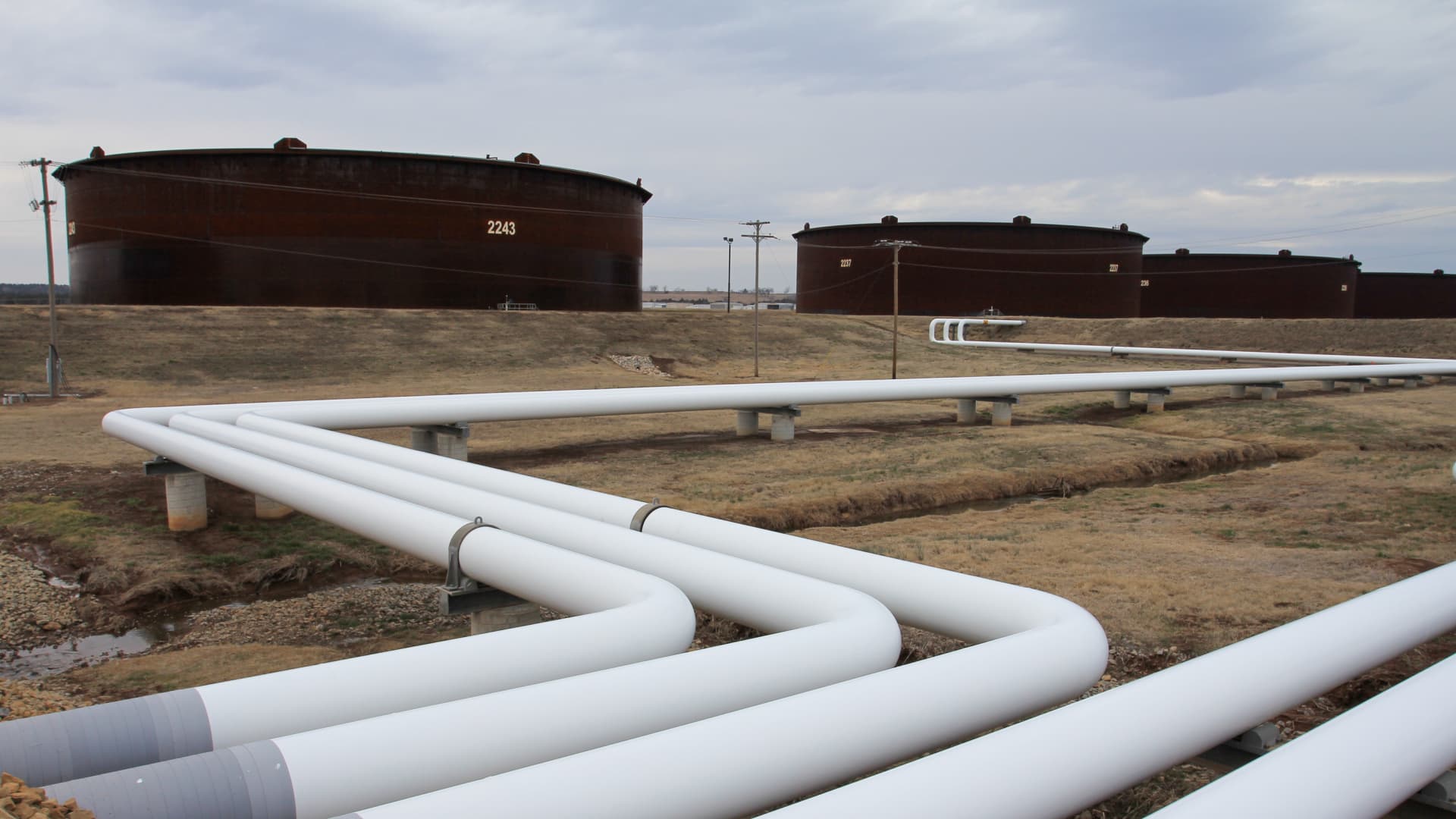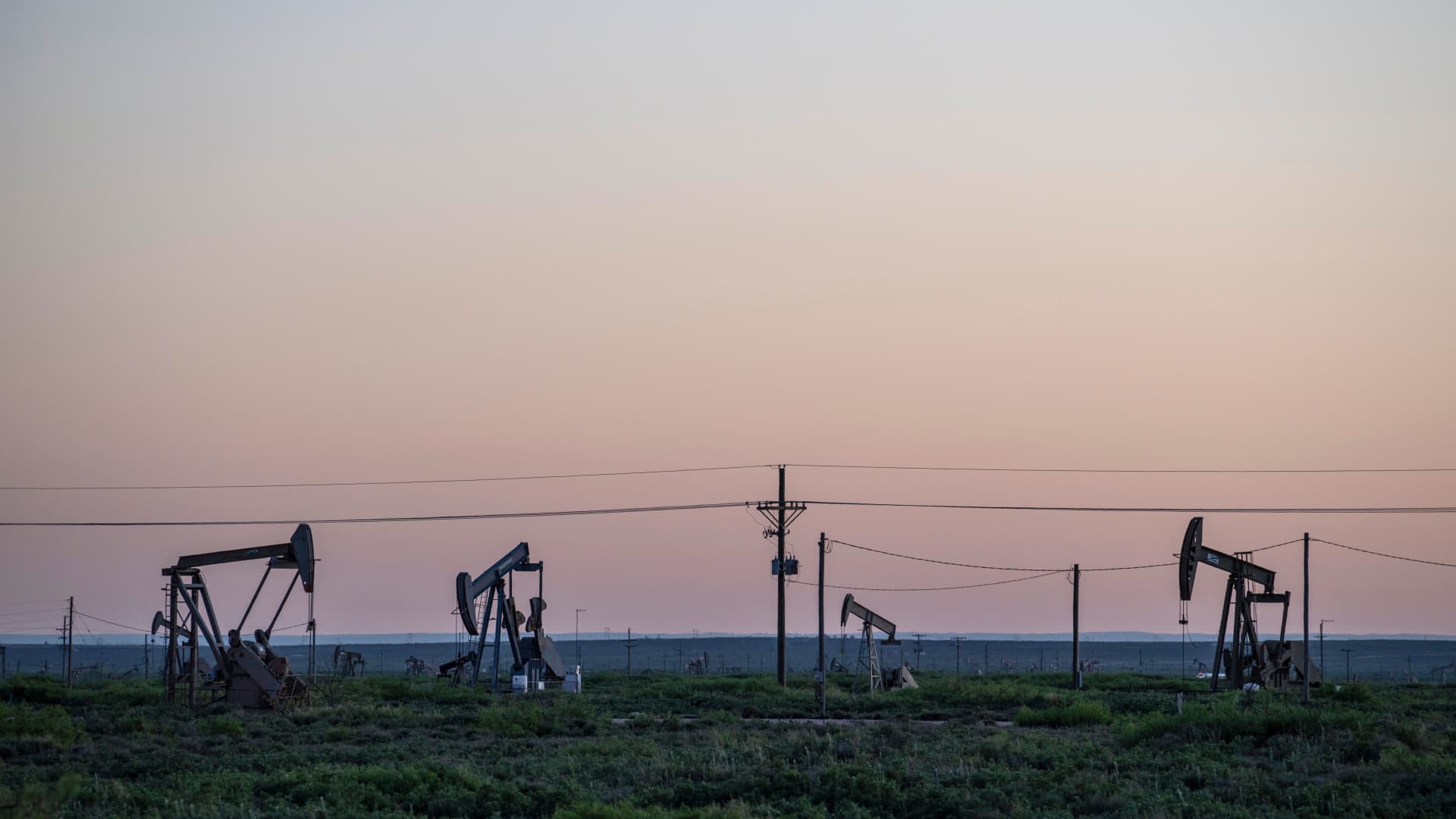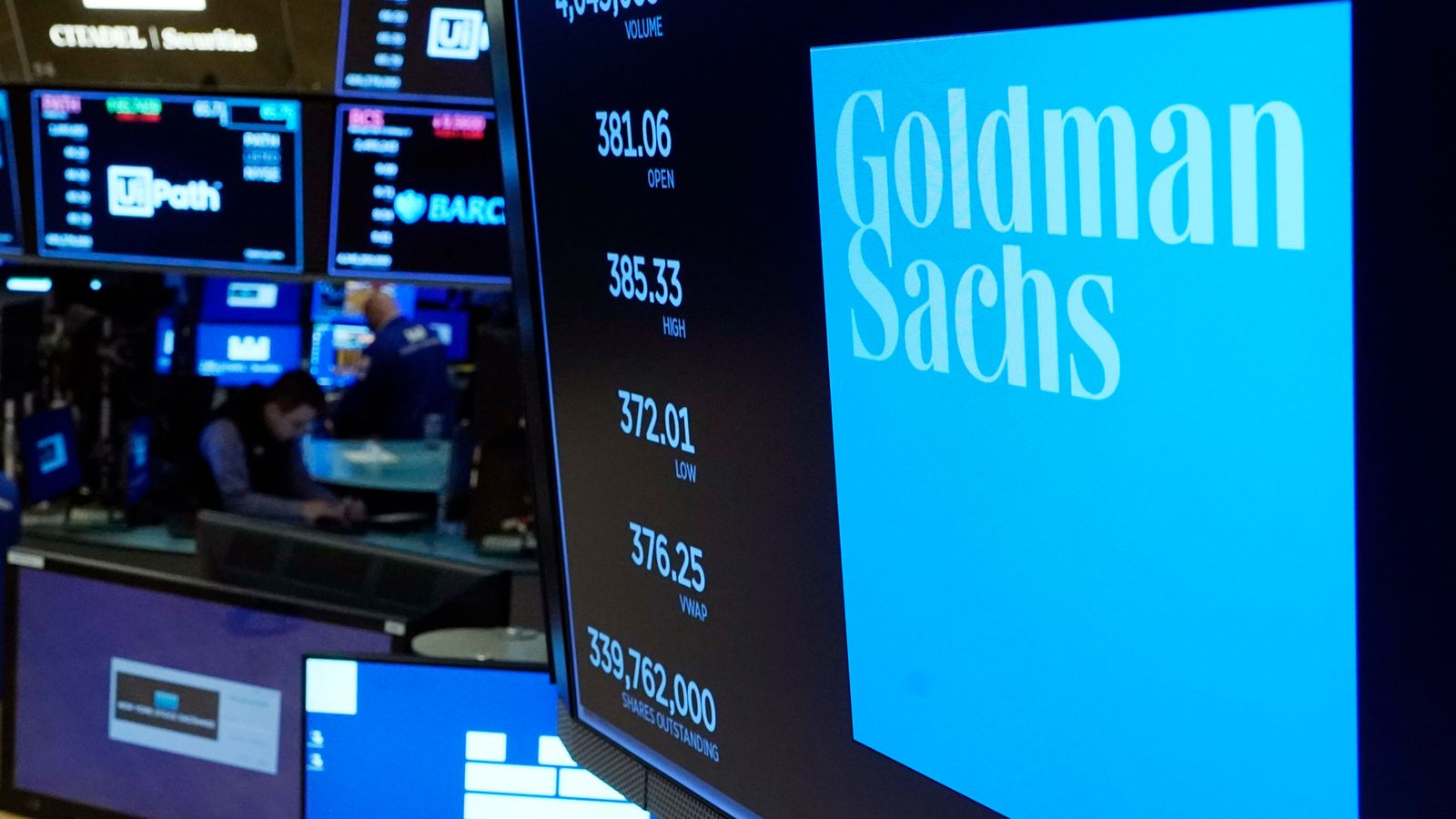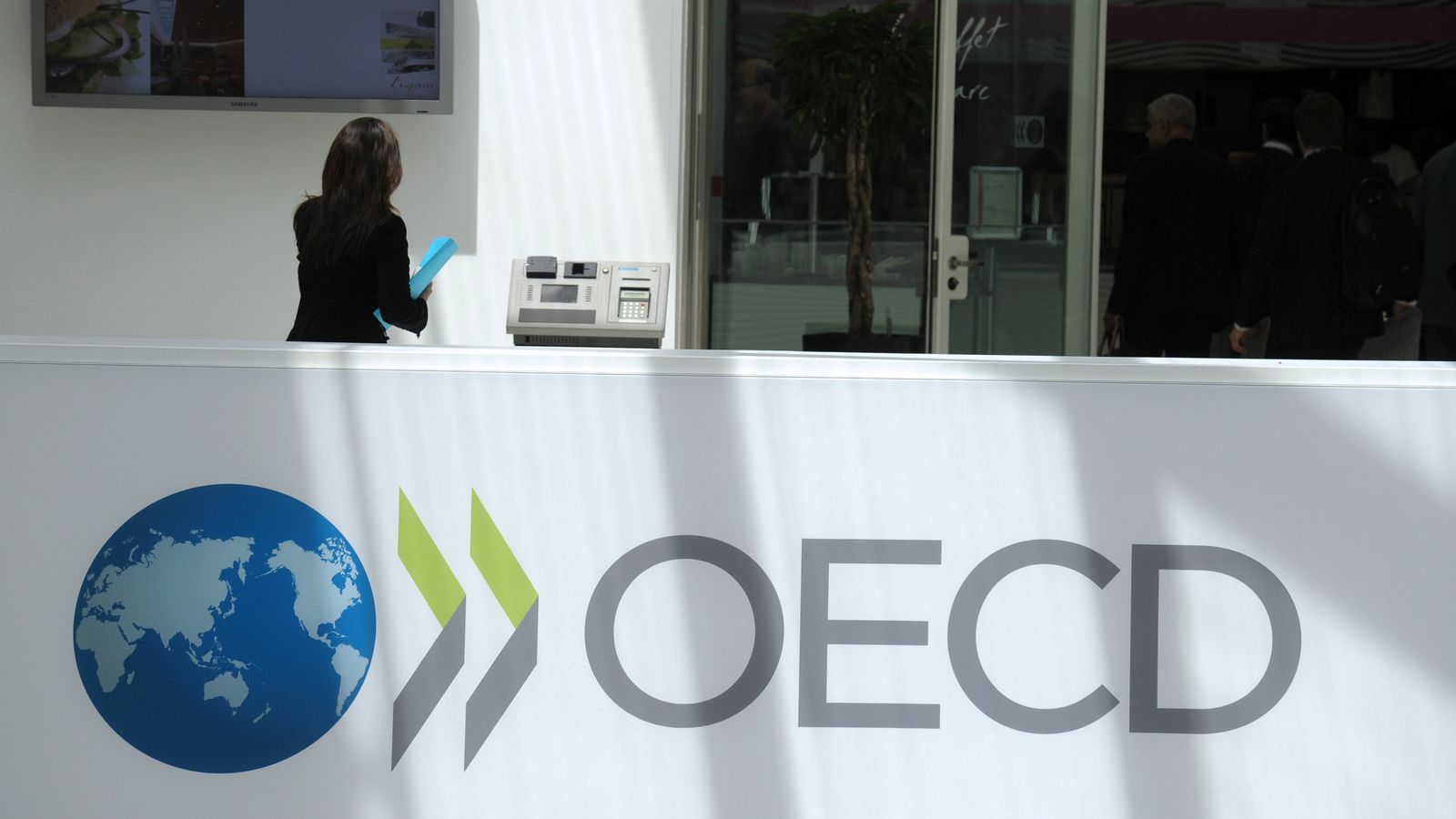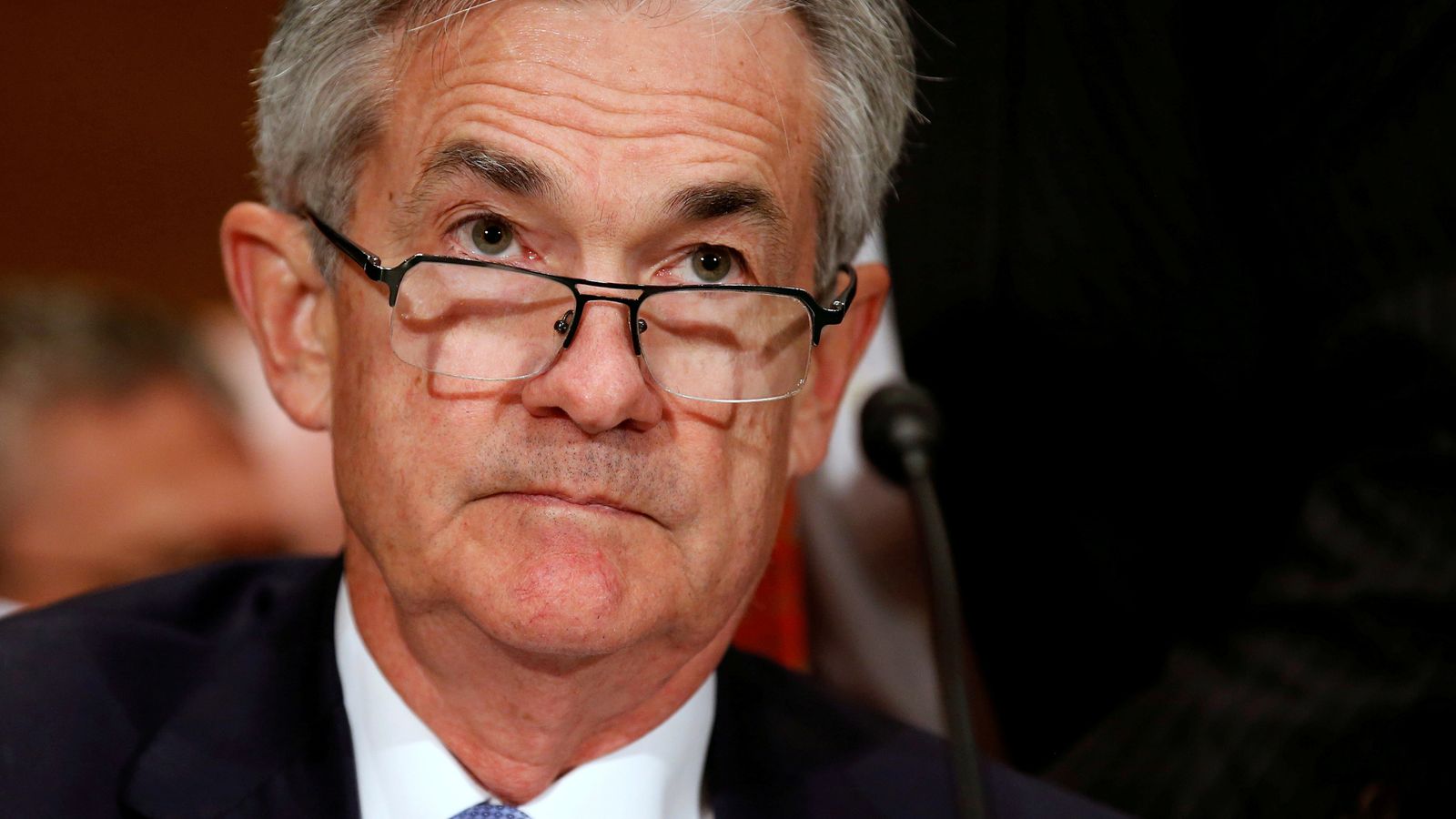Pipeline and crude storage tanks in Cushing Oklahoma.
Justin Solomon | CNBC
Crude oil futures edged lower Wednesday as U.S. crude inventories rose while OPEC+ is considering extending its production cuts into the second quarter.
The West Texas Intermediate contract for April dropped 45 cents, or 0.57% to $78.42 a barrel. April Brent futures fell 20 cents, or 0.24% to $83.45 a barrel.
U.S. commercial crude stocks rose by 4.2 million barrels last week, according to the Energy Information Administration. The inventory increase recorded by the federal government was lower than the 8.4 million barrel jump reported by the American Petroleum Institute.
Inventories have been rising in the U.S. as the rate at which refineries process crude into finished products has declined in recent weeks.
U.S. crude and the global benchmark are poised for a gain of 6.8% and 5%, respectively, for the month. First month futures contracts are trading at premium to later months. A premium for immediate over later delivery is typically a sign of a tightening crude market.
OPEC+ is considering extending its voluntary production cuts into the second quarter, sources told Reuters. The cartel and its allies agreed last November to slash 2.2 million barrels per day in the first quarter.
OPEC’s cuts are expected to limit downside risk to crude prices while the spare capacity the cartel is holding back will limit upside risk, effectively keeping Brent in a $70 to $90 range, according to a research note from Goldman Sachs published this week.
Crude prices have also found support this month from the ongoing conflict in the Middle East with tensions rising on the Israel-Lebanon border and Houthi militants continuing their attacks on commercial shipping in the Red Sea.
Goldman, however, views the geopolitical risk premium in oil prices as modest with crude production unaffected by the current conflict.

